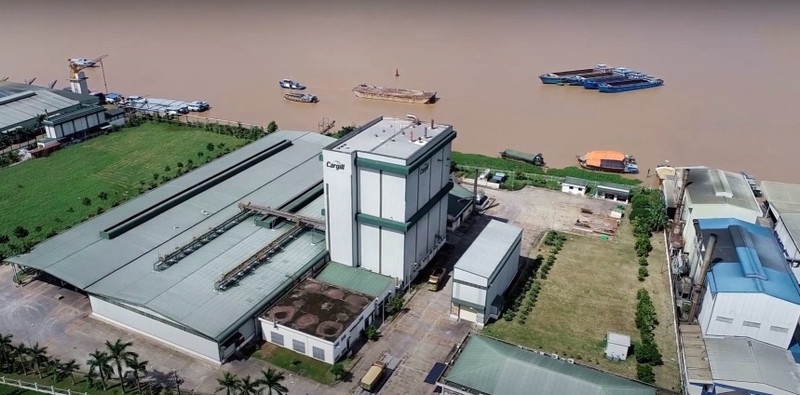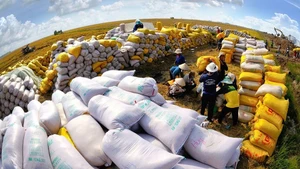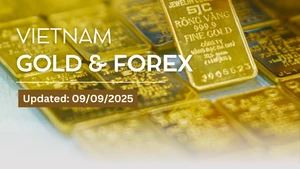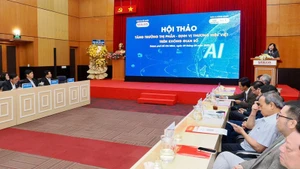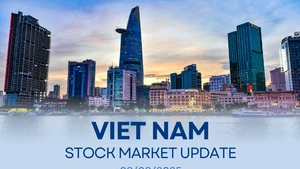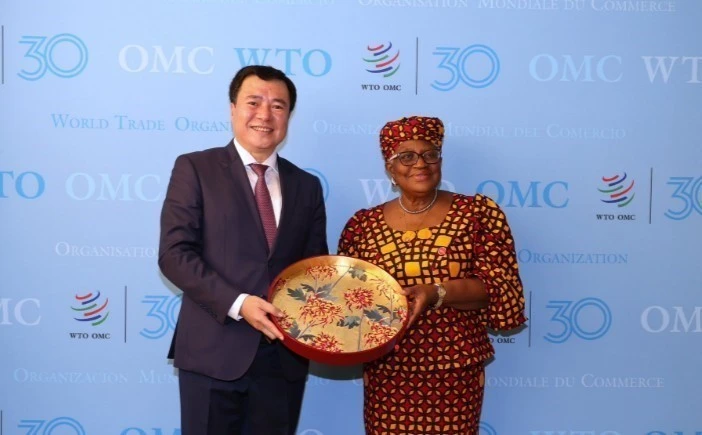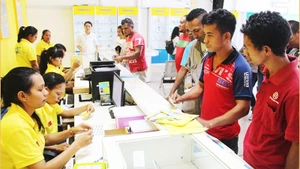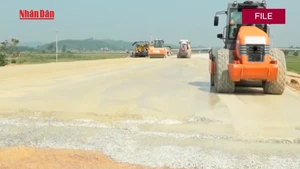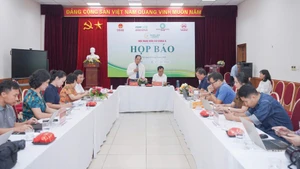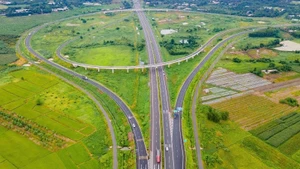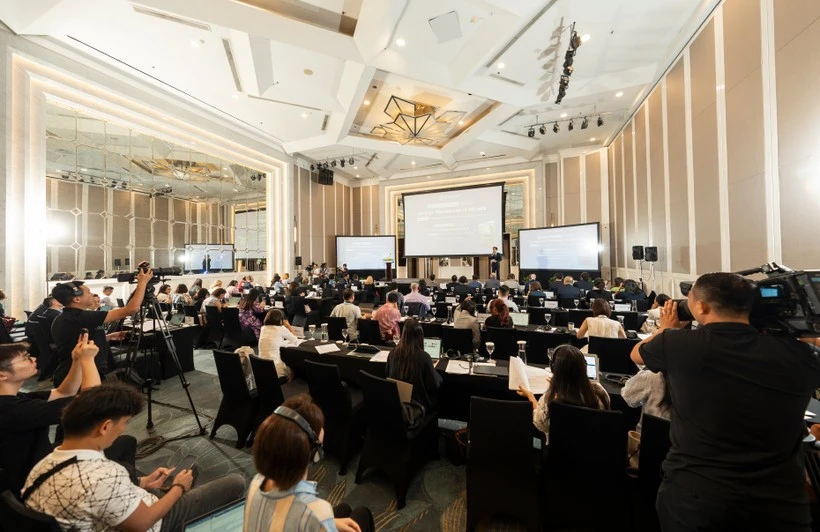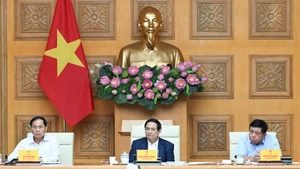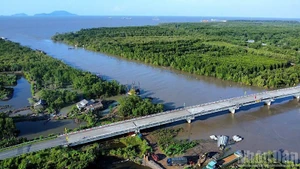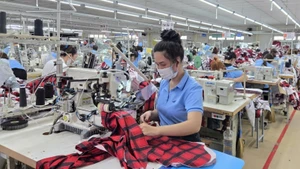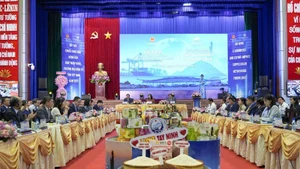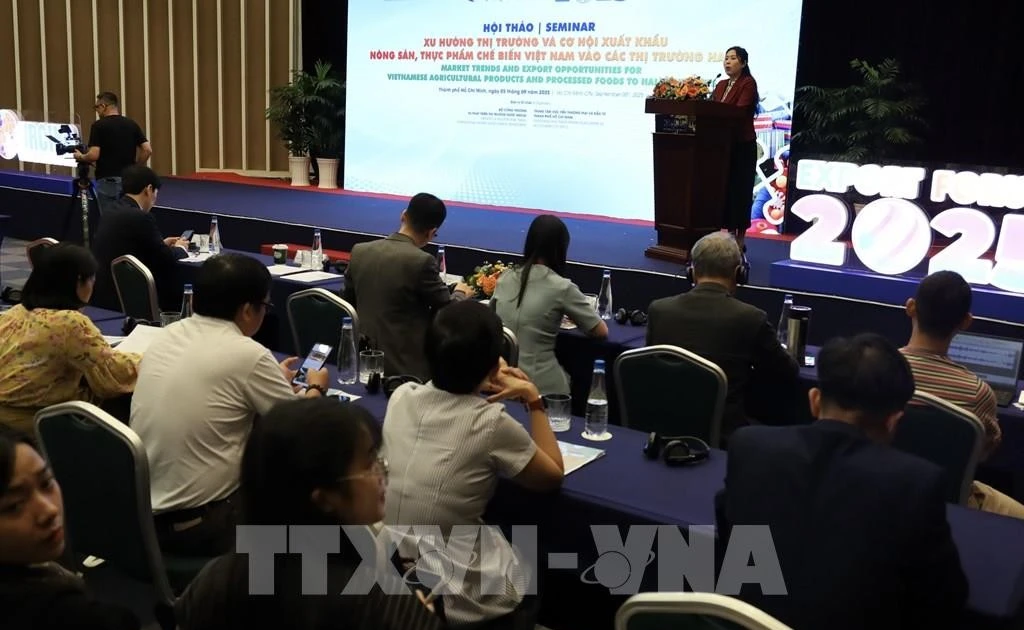This year will be a great year for Thailand as leaders from Asia and the Pacific region gather face to face in the country for a summit to discuss ways to promote sustainable recovery in the post COVID-19 world. This will be the first major event at which world leaders will gather and commit to jointly cooperate to overcome the woes posed in the post-pandemic world.
In 2022 at the Asia-Pacific Economic Co-operation (APEC) event, Thailand is going to highlight three pivotal areas, namely the facilitation of trade and investment; the rebooting of regional connectivity, especially the travel and tourism industry; and the advancement of sustainable, balanced, and inclusive growth through the bio-circular-green (BCG) economy.
All these areas are also in line with Vietnam’s concerns as the economy is seeking to further deepen its international integration, with a boost in such multilateral cooperation mechanisms as APEC considered pivotal in its foreign policy.
The Vietnamese government has released Resolution No.01/NQ-CP on the key tasks and solutions for implementing the country’s Socio-economic Development Plan and budget estimates for 2022. Under this resolution, the government has underlined the need to “continue to proactively and actively promote Vietnam’s role at multilateral mechanisms, especially ASEAN, the United Nations, APEC, and in Greater Mekong Subregion cooperation.”
Earlier, the 13th National Party Congress also determined to step up and raise its level of multilateral diplomacy, promoting Vietnam’s role in multilateral mechanisms, especially in ASEAN, the United Nations, APEC, Mekong Sub-region cooperation, and in other cooperation frameworks, as well as in solving issues of strategic importance, in accordance with the country’s requirements, capabilities, and conditions.
Currently, the Vietnamese Ministry of Foreign Affairs (MoFA) and other relevant ministries and sectors are working with Thailand and other stakeholders to discuss and materialise APEC’s to-do lists of activities for 2022, in a bid to help Vietnam expand trade and attract more investment.
Cemented cooperation
Vietnam became the 21st official member of APEC in November 1998, a significant milestone during the implementation of the economy’s open foreign policy of diversifying and multilateralising external relations and integrating into the global economy.
The APEC region is very important to Vietnam’s security and development as the region contains 21 economies making up 38% of the global population, 50% of the world’s area, 61% of GDP, and 47% of global trade.
APEC is home to many big economic partners of Vietnam, including nine strategic partners (Australia, Russia, China, Japan, the Republic of Korea (RoK), Indonesia, the Philippines, Thailand, and Singapore); and five comprehensive partners (the United States, New Zealand, Canada, Malaysia, and Chile).
APEC’s members also account for more than 77% of trade, 85% of foreign visitors, and 38% of official development assistance in Vietnam.
Seven APEC economies are Vietnam’s biggest export markets, including the United States, China, Japan, the RoK, Hong Kong, Malaysia, and Singapore.
According to the MoFA, Vietnam has actively proposed many feasible measures to support APEC in bearing the risks of broken supply chains and ensuring smooth operations of export-import markets in the region.
“Vietnam has also increased its experience in sharing and policy cooperation and carrying out financial and economic solutions to weather the difficulties during the health crisis, while also advancing support measures for businesses and individuals to overcome difficulties,” said a MoFA statement on Vietnam’s APEC membership.
In addition, Vietnam is also one of APEC’s leading members to urge the forum to commit to cooperation in vaccine sharing, ensuring vaccines are distributed equally.
Beefing up trade and investment ties
Recently Vietnam proposed APEC promote its leading role in fostering free trade in the region which can benefit all stakeholders.
“APEC needs to promote its leading role in advancing free trade: limiting measures to obstruct trade, discrimination, especially against essential goods; expanding the network of free trade agreements. APEC also needs to promote an open, transparent, and inclusive rules-based multilateral trading system and reform the World Trade Organization,” stated MoFA Minister Bui Thanh Son.
“APEC also needs to improve the resilience of supply chains, accelerate the implementation of agreed cooperation programmes on connectivity, the digital economy, and small and medium-sized enterprises so as to facilitate the flow of goods and people, while increasing digital transformation and enhancing enterprise resiliency,” he continued.
Vietnam also urged APEC to promote cooperation on the facilitation of trade in goods and services, environment, circular economy, security energy - water - food security, climate change and disaster risk management.
In the 1994-2019 period when the forum’s all Bogor Goals were carried out, APEC’s economic growth, trade, and investment augmented strongly. Specifically, the region’s total trade of goods and services quadrupled, with average tariff levels under the most-favoured-nation principle decreasing from 13.9 to 5.2% in 2019.
APEC’s inbound and outbound foreign direct investment (FDI) increased at an average annual rate of over 10%. APEC’s GDP grew 3.9% annually on average.
Under APEC’s Bogor Goals, by 2020, all APEC member economies had liberalised trade and investment via the reduction of trade barriers and the promotion of free flowing goods, services, and capital among APEC economies.
The registered investment capital from APEC economies into Vietnam has expanded in a remarkable manner. As of January 20, 2022, it accounted for 83.64% of total foreign-invested projects in the country, and 79.64% or more than 331 billion USD of total registered capital of 415.6 billion USD. Biggest investors included the RoK (77.32 billion USD), Singapore (65.24 billion USD), Japan (63.96 billion USD), Taiwan (35.29 billion USD), and Hong Kong (28.27 billion USD).
Nevertheless, senior Australian economist Raymond Mallon said that FDI inflows to Vietnam, as a ratio of GDP, are already amongst the highest in the world. Thus, the challenge is to further reform the business environment to attract FDI that is more likely to bring maximum benefit to Vietnam, while minimising potential social and environmental costs.
“Key factors that matter to investors considering long-term sustainable investments in Vietnam are long-term profitability and risk. Reform efforts should continue to focus on reducing administrative bottlenecks in Vietnam, improving public infrastructure and services, and strengthening skills and the institutional foundations for productivity growth while also ensuring macroeconomic and social stability,” Mallon said.
According to him, promoting equitable development is also important as it will help promote stability and increased domestic demand. It is critically important that the government continues to reduce the obstacles to the emergence of a dynamic domestic private sector, as many foreign firms are looking to build relationships (for example as suppliers) with dynamic and potentially lower cost) private firms.
Mallon suggested that Vietnam should also eliminate remaining preferential treatments such as tax incentives to individual investors. Such actions tend to favour a limited number of specially favoured (often larger) investors. Ad hoc incentives to encourage foreign investment can encourage corruption.
“All investors should be given equal treatment, regardless of ownership. However, arguments can be made to continue providing tax concessions to businesses investing in remote areas where public infrastructure and services are less well developed,” Mallon said.
Adam Sitkoff, executive director of the American Chamber of Commerce (AmCham Hanoi), also underlined the need for Vietnam to attract FDI from APEC member economies, including the United States.
“As major investors here, American companies are invested in Vietnam’s continued success and are looking towards a bright future here,” he said. “For Vietnam, to be successful, non-productive red tape must be controlled and the country’s regulatory framework must be stable and predictable. Many business people remain concerned with changes in policy and regulations which are not consistent with international best practices. We encourage continuous improvements in infrastructural development, the protection of intellectual property, educational reform, legal and tax policy certainty, and enhanced transparency in Vietnam.”
As of January 20, 2022, total US registered investment capital into Vietnam had reached 10.3 billion USD. Many US enterprises are performing well in Vietnam, such as AES, GE, Coca-Cola, Intel, and Cargill.
